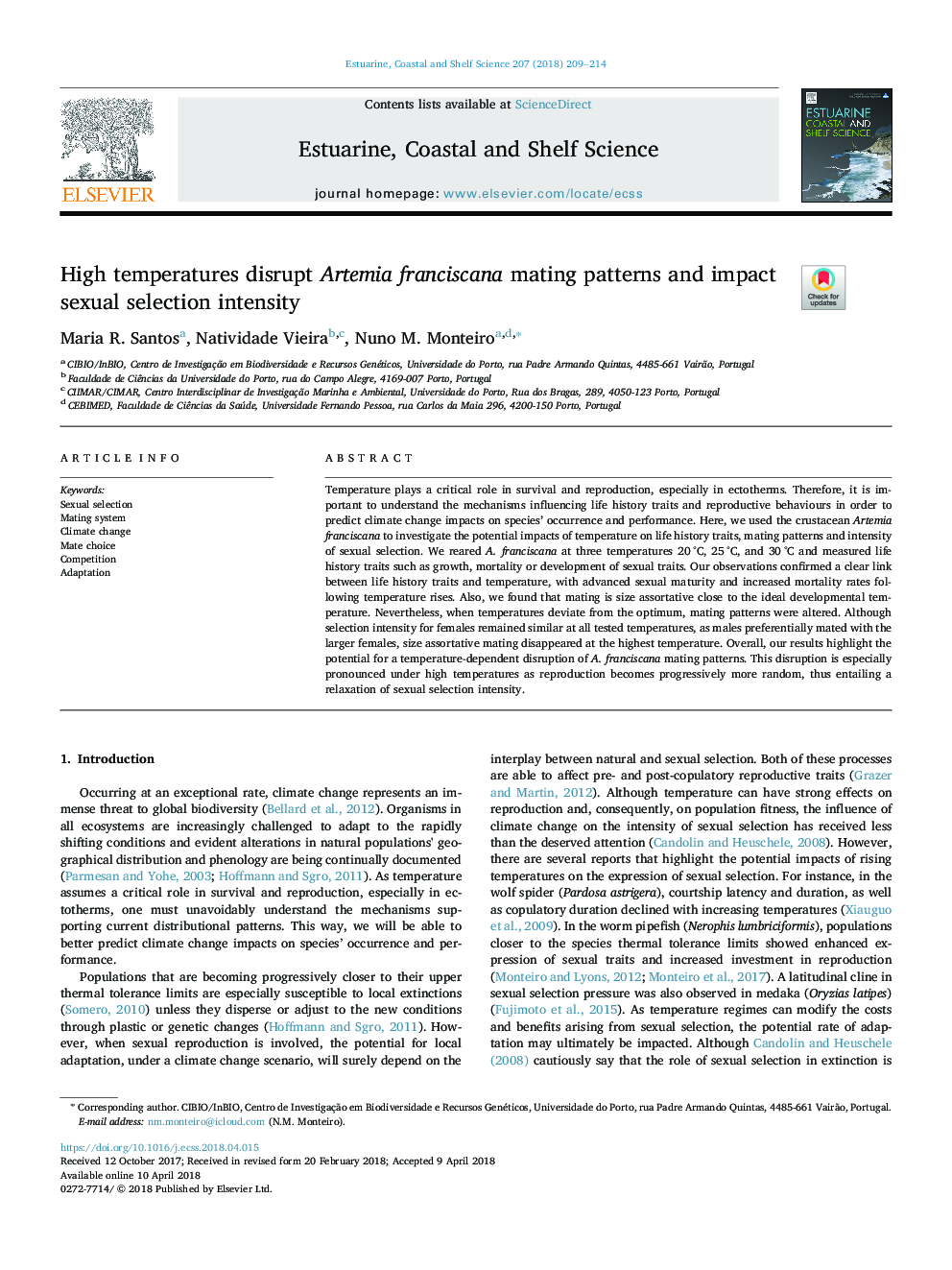| Article ID | Journal | Published Year | Pages | File Type |
|---|---|---|---|---|
| 8884794 | Estuarine, Coastal and Shelf Science | 2018 | 6 Pages |
Abstract
Temperature plays a critical role in survival and reproduction, especially in ectotherms. Therefore, it is important to understand the mechanisms influencing life history traits and reproductive behaviours in order to predict climate change impacts on species' occurrence and performance. Here, we used the crustacean Artemia franciscana to investigate the potential impacts of temperature on life history traits, mating patterns and intensity of sexual selection. We reared A. franciscana at three temperatures 20â¯Â°C, 25â¯Â°C, and 30â¯Â°C and measured life history traits such as growth, mortality or development of sexual traits. Our observations confirmed a clear link between life history traits and temperature, with advanced sexual maturity and increased mortality rates following temperature rises. Also, we found that mating is size assortative close to the ideal developmental temperature. Nevertheless, when temperatures deviate from the optimum, mating patterns were altered. Although selection intensity for females remained similar at all tested temperatures, as males preferentially mated with the larger females, size assortative mating disappeared at the highest temperature. Overall, our results highlight the potential for a temperature-dependent disruption of A. franciscana mating patterns. This disruption is especially pronounced under high temperatures as reproduction becomes progressively more random, thus entailing a relaxation of sexual selection intensity.
Related Topics
Physical Sciences and Engineering
Earth and Planetary Sciences
Geology
Authors
Maria R. Santos, Natividade Vieira, Nuno M. Monteiro,
